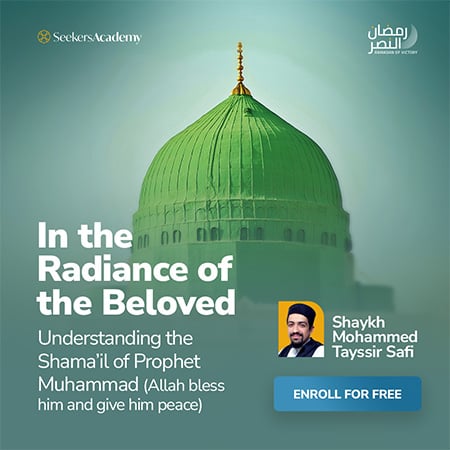
This course offers an immersive journey into the heart of Zakat within the Shafi‘i school of thought, guided by the timeless wisdom of Matn Abi Shuja‘. As we welcome the blessed month of Ramadan, participants will engage with the foundational principles and practical applications of Zakat, one of Islam's five pillars. Through interactive sessions, detailed study of Abi Shuja‘'s text, and reflections on its relevance today, attendees will deepen their understanding of Zakat's spiritual and social dimensions. Whether you're seeking to fulfill your religious obligations with greater insight or to enrich your spiritual practice during Ramadan, this course is designed to provide a comprehensive and engaging learning experience.
Matn Abi Shuja‘, also known as "Ghayat al-Ikhtisar" (The Ultimate Conspectus), is a highly regarded classical text in Islamic jurisprudence within the Shafi‘i School. Authored by Abu Shuja‘ Ahmad ibn al-Husayn al-Asfahani, this work serves as a foundational primer for students of Islamic law, offering a concise yet comprehensive overview of Shafi‘i fiqh. Covering the key topics of worship (ibadat) and personal status law (mu'amalat), including purification, prayer, fasting, alms (zakat), and pilgrimage, Matn Abi Shuja‘ is celebrated for its clarity, systematic organization, and accessibility. It has been the subject of numerous commentaries and is studied across the Muslim world as an essential text for those seeking to understand the principles and applications of Shafi‘i Jurisprudence.
This course is designed for a diverse audience with varying levels of familiarity with Islamic jurisprudence, specifically within the context of the Shafi‘i school of thought. It is suitable for:
Students of Islamic Studies: Individuals pursuing formal education in Islamic studies who wish to deepen their understanding of Shafi‘i fiqh, especially in the area of zakat.
Practicing Muslims: Members of the Muslim community interested in accurately fulfilling their zakat obligations according to the Shafi‘i madhhab, seeking to enhance their religious practice during Ramadan.
Islamic Scholars and Teachers: Scholars and educators looking for a refresher course or new perspectives on teaching the principles of zakat as presented in Matn Abi Shuja‘.
Community Leaders: Community and mosque leaders aiming to provide accurate guidance on zakat to their communities, based on a solid understanding of Shafi‘i jurisprudence.
The course is crafted to accommodate both beginners who have no prior knowledge of Islamic jurisprudence and more advanced learners seeking to consolidate and expand their understanding of zakat within the Shafi‘i framework, making it a comprehensive educational opportunity for all participants.
- Understand the Foundations of Zakat in Shafi‘i Fiqh: Gain a thorough grasp of the fundamental principles, conditions, and categories of zakat as delineated in the Shafi‘i School, enabling participants to comprehend the legal and spiritual significance of zakat in Islam.
- Apply Zakat Calculation Methods: Acquire the skills to accurately calculate zakat on various types of wealth, including cash, gold, silver, and trading stock, according to the specific rulings and guidelines of the Shafi‘i School.
- Identify Zakat Eligibility and Distribution: Learn to determine the eligibility of zakat recipients, understanding the eight categories outlined in Islamic law, and how to distribute zakat effectively.
- Navigate Contemporary Issues in Zakat: Explore the application of traditional Shafi‘i zakat principles to contemporary financial situations, such as modern banking, investments, and cryptocurrencies, equipping participants to make informed decisions in today’s economic context.
- Enhance Spiritual and Social Awareness: Deepen spiritual understanding and social responsibility through the practice of zakat, recognizing its role in purifying wealth, assisting the needy, eradicating poverty, and fostering a sense of solidarity and compassion within the Muslim community.


